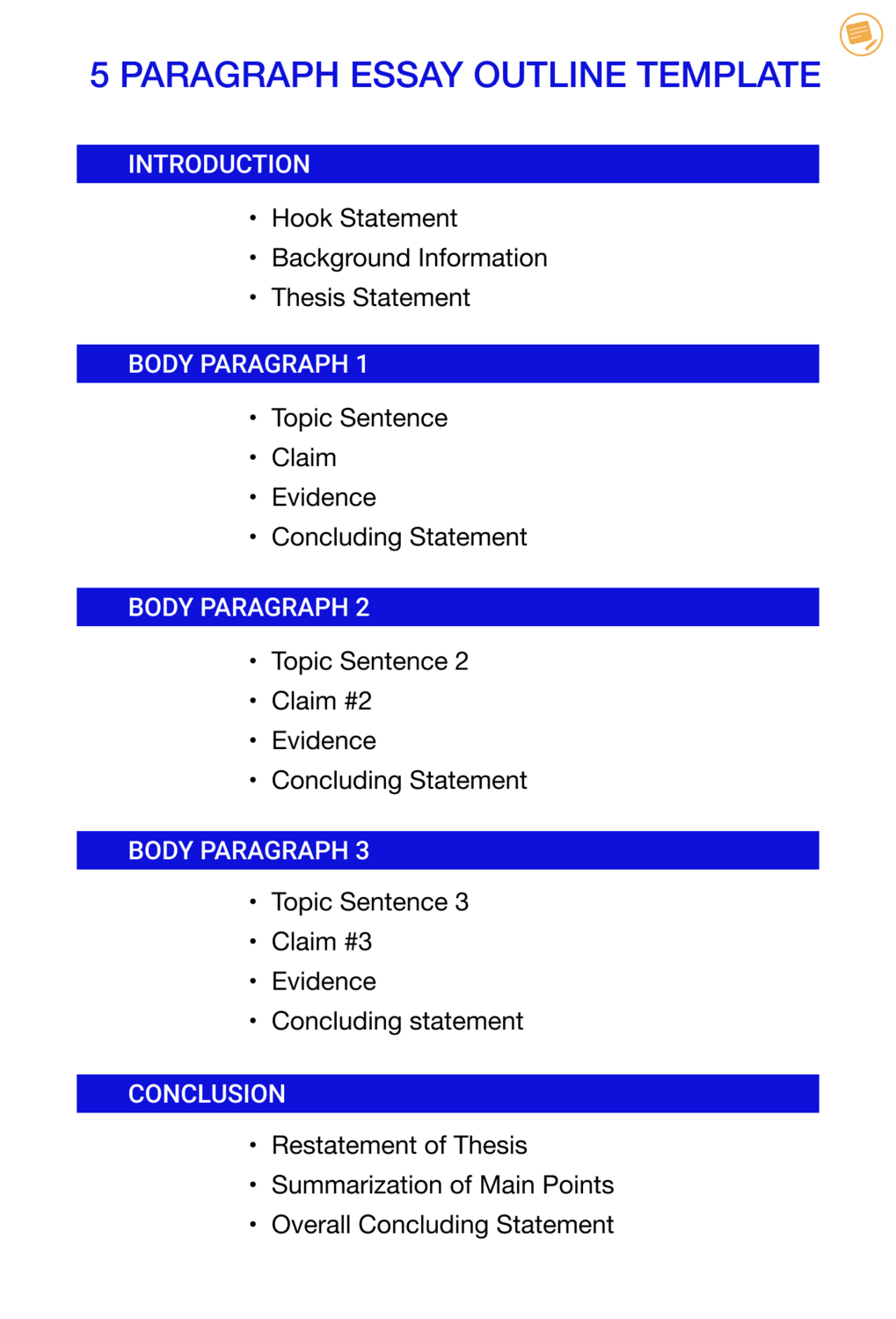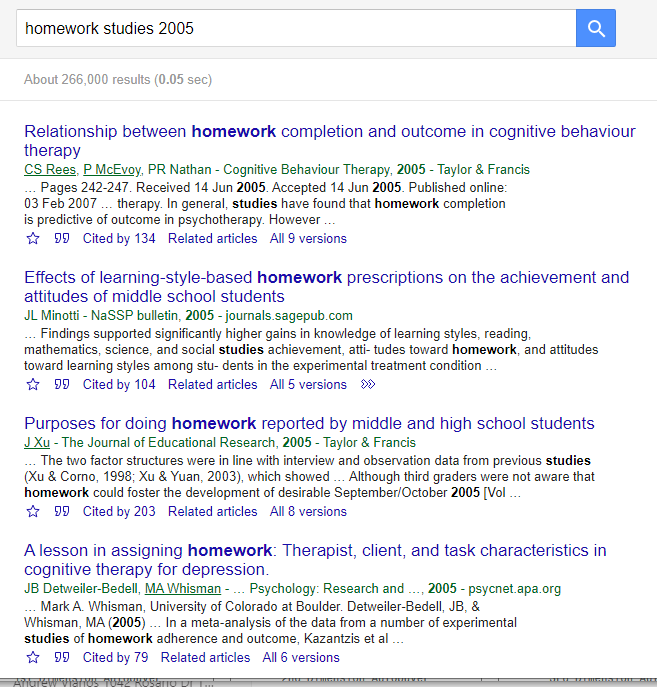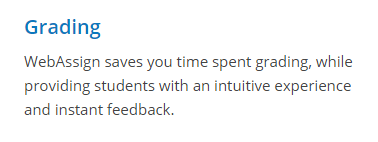The homework assignment incentives, and why it's now so extreme
post by Andrew Vlahos (andrew-vlahos) · 2021-06-22T04:19:08.042Z · LW · GW · 19 commentsContents
YES (1)(2)(3) None 19 comments
I'll tell you about something that happened in middle school and high school. I had multiple classes each day, in different subjects. Maybe first I had math class. As we all know*, the more homework is assigned in a subject, the better a student retains* the information. The teacher didn't assign an unreasonable* amount of homework though, just an amount proportional to it's importance*, somewhere from half an hour to an hour per day.
Then next I had history class. Once again, the teacher assigned lots of homework so students internalized* the information.
Next, I had English class. The English teacher... well, you see the pattern.
When this was done, I had 3 to 5 hours of homework per day. As you might have guessed, each asterisk marks a piece of bullshit.
I went to the teachers and tried to explain the problem, but each one considered their subject to be the most important. The Math teachers said that math is what the universe runs on, it's needed for clear reasoning in all other subjects. The History teacher said that mistakes in history cause problems that cause massive harm to everyone, and is needed for clear perspective in all other subjects. The English teacher... the point is, each said that although other teachers maybe should reduce their homework, "I" don't need to.
A simple google search shows that I'm not alone. If you google "high school homework amount" or "middle school homework amount" you get a lot of articles that say "students get an average of 3.5 hours of homework per day", anecdotes that a lot of kids are burning out, a guideline of how much homework kids should have of 10 minutes per day per grade level (with dubious research and psychology behind it), and... claims that high school students have much less homework than that. What's with those? I looked into those claims and some are based mostly on a 2007 study (a bit more than an hour) or earlier (less than an hour in the 1990s and before), and the rest are turning more recent studies claiming that teachers assign 3.5 hours of homework a week and not multiplying by number of teachers, or some other bad statistics. Homework really was much less bad a few decades ago. But it's been climbing, and articles that cite more recent sources properly pretty much all agree on this.
Homework wouldn't be so bad if it was an optional review study tool, but it was a huge part of the grade. If I only did half the homework, for a "reasonable" 2 hours of busywork per day, than even if I got 100% on the problems I did do I would have 50% of the grade, an F. I assure you that the stress in this article is completely realistic.
What happened in the 00's that caused homework to explode? I don't have hard proof of my theory, but...
This is where this article starts to get scary.



Before 2000, homework was strongly limited by teachers' time. If a teacher assigned homework and tests, they would then need to grade the homework and tests. Assigning more work than minimum would hurt themselves. However, during the 00's, technology and standardization became normal. Grading a 5-paragraph standard format formulaic essay is much easier and faster than grading other essays. Webassign, started in 1998, had been spreading from school to school (as well as other online homework systems). Things like these disconnect teacher's time and homework time; now teachers can assign as much homework as they think proper. And why wouldn't they assign lots of homework now? Studies reliably say that students who do their homework have much better life outcomes, and patients who diligently complete homework assigned by their therapists get better than patients who don't (Can you see the problem here?). Therefore, lots and lots of homework.
Does this theory pay rent? Would suddenly making grading even more automated lead to a massive homework spike? I planned this article before checking what happened during quarantine, when school suddenly went online for everyone. If my theory is correct, there would be a sudden increase in homework for quite a lot of people (not everyone, but many). Did that happen?
YES (1)(2)(3)
The really scary thing is that there is nothing now reliably limiting homework load, but still incentive to keep increasing it. As long as teachers continue to think homework helps students, they won't listen to students complaining. Some parents would complain too, but they aren't the decision makers, and "For every mom complaining about too much homework, there's another frustrated parent saying her child is getting too little". I was lucky and had parents who saw the problem, but they couldn't do much besides give sympathy.
College, which has TAs grade things instead of Professors, got this problem a long time ago. As they say, "Study, social, sleep, pick two" (there are many variations).
What about at the limit? Teachers doing almost no grading at all, and only checking completion? I have some bad news. Most teachers limit themselves somewhat, but others appear unbounded. My AP calculus teacher, as the test approached, told students that they must complete two tests from previous years per night including weekends, then grade themselves, and turn it in. Each AP test was one that students had 1.5 hours for originally, and "knowing the material" was not accepted as an excuse. Fortunately, students going to the dean of students were able to get this cancelled, but if the dean had also been unsympathetic we would have had no recourse. I know someone else, "R", who had a college class where a professor just assigned every assignment available in some software the school had instead of picking the ones that he thought would best fit lessons and teaching style, which was the way the software was meant to be used.
As a final note, I went to an expensive private school, not a public school. The problem wasn't caused by standardized testing.
19 comments
Comments sorted by top scores.
comment by [deleted] · 2021-06-22T08:53:53.912Z · LW(p) · GW(p)
but if the dean had also been unsympathetic we would have had no recourse
I beg to differ. Maybe your school was particularly strict, but usually there are plenty of ways around homework assignments in high school: Copy homework from other classmates last minute, turn in fake homework, read the summary instead of a whole book, share workload with your friends, get solutions from older students, call in sick strategically on days with especially large workloads etc.
And the advance of technology isn't all bad, it also provides students with new options: GPT-3 for essays, Wolfram Alpha for math problems, mechanical-turk-like services to outsource homework, handwriting robots and soon, test-taking AIs. If you got hacking skills, well, let's just say you'd be surprised what sort of stuff teachers leave on the school server. And for online classes, keep in mind that it also becomes harder for the teacher to verify the authenticity of your homework. Be creative, think positive.
Replies from: Vanilla_cabs↑ comment by Vanilla_cabs · 2021-06-26T08:50:12.036Z · LW(p) · GW(p)
True. The difference is that successfully appealing to the dean goes toward showing that the system has somewhat of a safeguard, while you solutions don't.
Also, the most honest students are the ones who will use your solutions less and keep suffering most, which makes the system (school requirements+your solutions) wicked. (edited for clarity)
Replies from: None↑ comment by [deleted] · 2021-06-27T01:26:34.662Z · LW(p) · GW(p)
I don't mean to sound overdramatic here, but equating honesty with obedience to authority is quite a sinister sleight of hand. Skipping excessive homework is not only advantageous, it is also righteous.
Replies from: Vanilla_cabs↑ comment by Vanilla_cabs · 2021-06-27T07:54:35.013Z · LW(p) · GW(p)
I'm not equating honesty with obedience to authority. An honest person can openly defy orders, by refusing to turn in homework for example. But your methods, outsourcing homework, hacking, calling in sick to avoid workload, require being dishonest with the system, thereby excluding honest persons.
comment by Dave Lindbergh (dave-lindbergh) · 2021-06-22T16:04:42.960Z · LW(p) · GW(p)
It has been more than 40 years since I personally had to deal with this BS.
The stories I hear from my children confirm what you say. One result seems to have been students cooperating online to do homework. That seems to be impossible to police. For sure that would have been "cheating" when I was in school, but it seems there is no practical alternative for students who want to get decent grades. Perhaps peer pressure makes students try to contribute to the group effort, which might ensure that most of them learn some of the material. There may be positive effects - students to some extent specialize in doing homework in subjects they find easy, and get extra help on subjects they find hard. That could be a good thing (there's always a tension between exploiting natural talents and being "rounded").
AFAICT this doesn't seem to have reduced the amount students actually learn. But I worry about the effect on standards of probity (but have no evidence that there has in fact been a negative effect so far).
The simplest solution for school administrators might be to insist that teachers grade assignments personally (no outsourcing to students or the Internet) and promptly - within 48 hours of receiving the homework.
The students themselves could police that, and it would naturally place some limits on how much homework the teachers can assign.
Replies from: andrew-vlahos↑ comment by Andrew Vlahos (andrew-vlahos) · 2021-06-22T21:51:37.310Z · LW(p) · GW(p)
How would students police that, exactly? Could you elaborate?
Also, coordination was tried, like when I made a deal with a friend named Griffin to do a homework exchange, but parents shut that down because that's considered plagiarism and "cheating is wrong".
Replies from: None, dave-lindbergh↑ comment by [deleted] · 2021-06-23T03:21:30.493Z · LW(p) · GW(p)
I occasionally did homework swaps, and more often let friends copy off me. Such practices were rampant at my school, and I went to a small nerd high school. Your mistake was letting anyone except the person involved know about the trade.
Replies from: Viliam↑ comment by Dave Lindbergh (dave-lindbergh) · 2021-06-25T17:37:59.406Z · LW(p) · GW(p)
By policing that, I mean if the students don't get the graded homework back in 48 hours, they can complain to administrators and parents, who can pressure the teacher. This assumes the administrators decide to make and enforce the 48 hour rule.
Re coordination, I've seen kids using "group chat" on Facebook or similar. In some schools (good ones) it seems to be de rigueur.
comment by Viliam · 2021-06-22T17:59:34.324Z · LW(p) · GW(p)
From a cynical perspective, this is not a bug, this is a feature! You only need to accept that the real purpose of education system is to preserve class differences in the society.
Educated parents are more efficient at helping their kids with homework. Rich parents are more efficient at paying for help. Middle-class kids have more middle-class friends, and they can help each other with homeworks.
The system filters out the kids who have to help at home, and whose parents lack education and connections.
Replies from: Vanilla_cabs, adrian-arellano-davin↑ comment by Vanilla_cabs · 2021-06-26T09:03:00.865Z · LW(p) · GW(p)
Doesn't have to be on purpose. If we could see all the ways an education system could fail, we'd see a lot of them fail in ways that favor children of educated parents. That seems like the default mode of failure, whereas failing while favoring children of uneducated parents instinctively feels like it would require more specific circumstances.
↑ comment by mukashi (adrian-arellano-davin) · 2021-06-26T06:11:28.414Z · LW(p) · GW(p)
In practical terms, the education system might work that way, but I doubt it is intended to do that by design. It is just an inadequate system trapped into a very stable Nash equilibrium from which the only families that can escape are the rich ones.
comment by ChristianKl · 2021-06-23T19:24:50.786Z · LW(p) · GW(p)
One intersting article is Students Spend More Time on Homework but Teachers Say It's Worth It:
The survey of 1,000 K-12 teachers found, among other things, that high school teachers on average assign about 3.5 hours of homework each week. For high school students who typically have five classes with different teachers, that could mean as much as 17.5 hours each week. By comparison, the survey found middle school teachers assign about 3.2 hours of homework each week and kindergarten through fifth grade teachers assign about 2.9 hours each week.
[...]
"What has changed is not necessarily the magic number of how many hours they’re doing per night, but it’s the quality of the homework," says Ashley Norris, assistant dean of the university's college of education. Part of that shift in recent years, she says, may come from more schools implementing the Common Core State Standards, which are intended to put more of an emphasis on critical thinking and problem-solving skills.
The pointer to Common Core standards leads to another hypothesis. Maybe, standardized testing is to blame? If teachers are evaluated by scores of their students on standardized tests, they have a strong incentive to assign a lot of homework.
comment by JMatthews · 2021-06-22T05:44:30.012Z · LW(p) · GW(p)
I would find highly unlikely in the UK that teachers are assigning anywhere near 3-5 hours of homework per day with the exception of exam years and even then I think that seems extreme. I'm also sceptical of homework beyond a bit of retrieval practice on past content. But if I assigned anymore than an hour per week (usually it's 30 minutes) I'd be inundated with parent emails. Perhaps you're focusing on elite schools?
Replies from: ChristianKl, andrew-vlahos↑ comment by ChristianKl · 2021-06-22T11:17:00.999Z · LW(p) · GW(p)
But if I assigned anymore than an hour per week (usually it's 30 minutes) I'd be inundated with parent emails.
You are likely just one teacher that the students have. How many teachers are assinging a similar amount to the same students?
↑ comment by Andrew Vlahos (andrew-vlahos) · 2021-06-22T21:36:06.134Z · LW(p) · GW(p)
I'm in the US, not UK (sorry for not clarifying). Maybe homework is functional there, and if so, great, but that isn't what happens here. Also, I wish homework was a bit of retrieval practice on past content, but it's not
Replies from: gjm↑ comment by gjm · 2021-06-26T10:57:46.744Z · LW(p) · GW(p)
Another UK data point: my daughter is in secondary school (= high school), not in a public-exam year. The school's officially stated policy is that pupils in her year should expect 1.5-2.5 hours of homework per day. At no point has she been set anywhere near that much. The typical total is more like half an hour per day. (She's very bright and it's hard to know for sure how much time it's meant to take; I'm guessing based on what she tells me.)
I'm fairly sure this varies a lot from school to school, even if we hold fixed what country, public-versus-private, etc.
comment by Mary Chernyshenko (mary-chernyshenko) · 2021-06-26T07:16:02.124Z · LW(p) · GW(p)
I don't know. Our teachers (Ukraine) don't seem to use automated systems, yet there's still tons of homework.